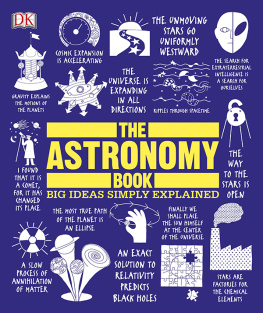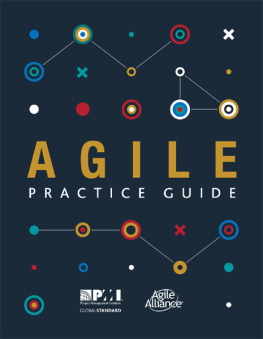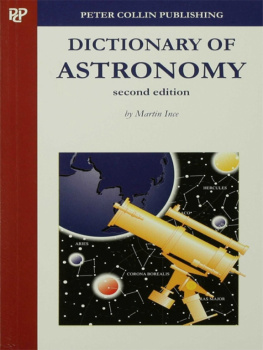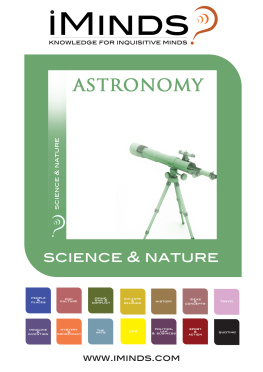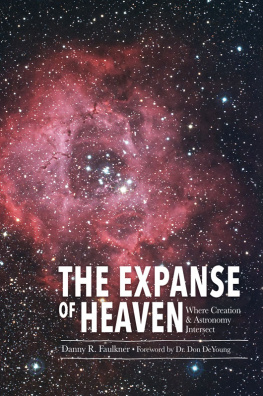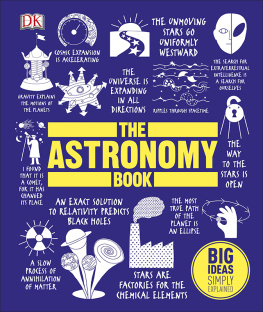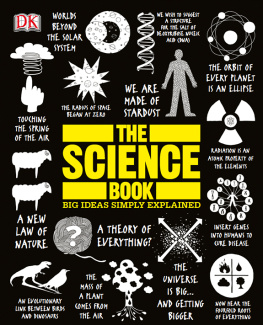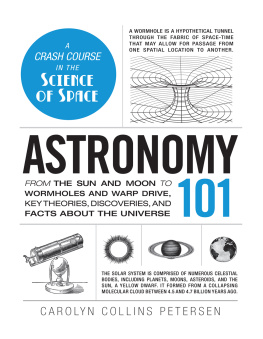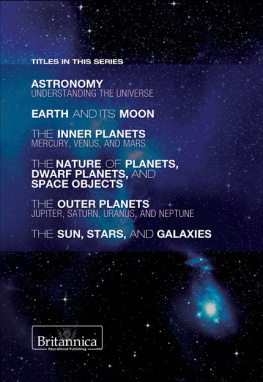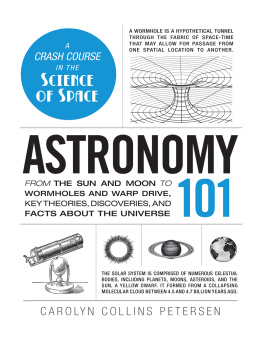coll. - The Astronomy Book
Here you can read online coll. - The Astronomy Book full text of the book (entire story) in english for free. Download pdf and epub, get meaning, cover and reviews about this ebook. year: 2017, publisher: DK, genre: Religion. Description of the work, (preface) as well as reviews are available. Best literature library LitArk.com created for fans of good reading and offers a wide selection of genres:
Romance novel
Science fiction
Adventure
Detective
Science
History
Home and family
Prose
Art
Politics
Computer
Non-fiction
Religion
Business
Children
Humor
Choose a favorite category and find really read worthwhile books. Enjoy immersion in the world of imagination, feel the emotions of the characters or learn something new for yourself, make an fascinating discovery.
The Astronomy Book: summary, description and annotation
We offer to read an annotation, description, summary or preface (depends on what the author of the book "The Astronomy Book" wrote himself). If you haven't found the necessary information about the book — write in the comments, we will try to find it.
An essential guide to milestone developments in astronomy, telling the story of our ideas about space, time, and the physics of the cosmosfrom ancient times to the present day.
From planets and stars to black holes and the Big Bang, take a journey through the wonders of the universe. Featuring topics from the Copernican Revolution to the mind-boggling theories of recent science, The Astronomy Book uses flowcharts, graphics, and illustrations to help clarify hard-to-grasp concepts and explain almost 100 big astronomical ideas. Covering the biographies of key astronomers through the ages such as Ptolemy, Galileo, Newton, Hubble, and Hawking, The Astronomy Book details their theories and discoveries in a user-friendly format to make the information accessible and easy to follow.
Series Overview: Big Ideas Simply Explained series uses creative design and innovative graphics along with straightforward and engaging writing to make complex subjects easier to understand. With over 7 million copies worldwide sold to date, these award-winning books provide just the information needed for students, families, or anyone interested in concise, thought-provoking refreshers on a single subject.
coll.: author's other books
Who wrote The Astronomy Book? Find out the surname, the name of the author of the book and a list of all author's works by series.

